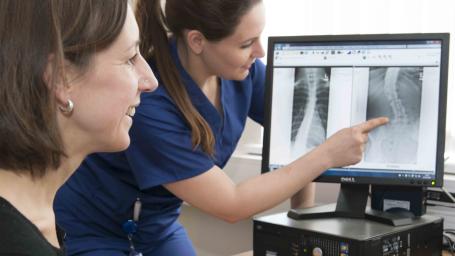Over 13 months, between April 2020 and May 2021, a total of 1,272 hospitalised COVID-19 patients with acute respiratory failure, aged over the age of 18, were recruited to the study and randomly allocated to receive one of three respiratory support interventions as part of their hospital care.
380 (29.9%) participants received CPAP; 417 (32.8%) participants received HFNO; and 475 (37.3%) received conventional oxygen therapy.
The primary outcomes assessed through the trial were whether the patient went on to require tracheal intubation (invasive mechanical ventilation) or died within 30-days of beginning treatment through the trial.
In the comparison of CPAP and conventional oxygen therapy, the likelihood of patients going on to require invasive mechanical ventilation or die within 30-days of treatment was significantly lower in those who were treated with CPAP, than those who received standard care. In the CPAP group, 137 of 377 participants (36.3%) either needed mechanical ventilation or died within 30 days, compared with 158 of 356 participants (44.4%) in the conventional oxygen therapy group.
There was no difference in primary outcomes between patients in the HFNO and conventional oxygen therapy groups. In the HFNO group, 184 of 414 participants (44.4%) went on to require mechanical ventilation or die, compared with 166 of 368 participants (45.1%) in the conventional oxygen therapy group.
Based on these results, 1 person would avoid needing invasive ventilation within intensive care units (ICU) for every 12 people treated with CPAP instead of standard oxygen therapy.
Dr James Dodd, Respiratory Specialist and Principal Investigator of RECOVERY-RS here at North Bristol NHS Trust said:
“The RECOVERY-RS trial has provided much needed evidence about the most effective ways of supporting some of the most seriously ill patients with COVID-19 requiring additional oxygen. These preliminary data suggests that CPAP, a form of non-invasive respiratory support delivered outside of critical care, can reduce the need for invasive ventilation and reduce the pressure on intensive care beds. It also suggests that high-flow nasal oxygen which uses lots of oxygen did not improve outcomes.
This evidence will help clinicians at North Bristol NHS Trust and across the world caring for patients with severe COVID-19 and respiratory failure. We would like to thank our patients and extended research team working across respiratory medicine, emergency and critical care in delivering this study in the early phases of the pandemic.”

